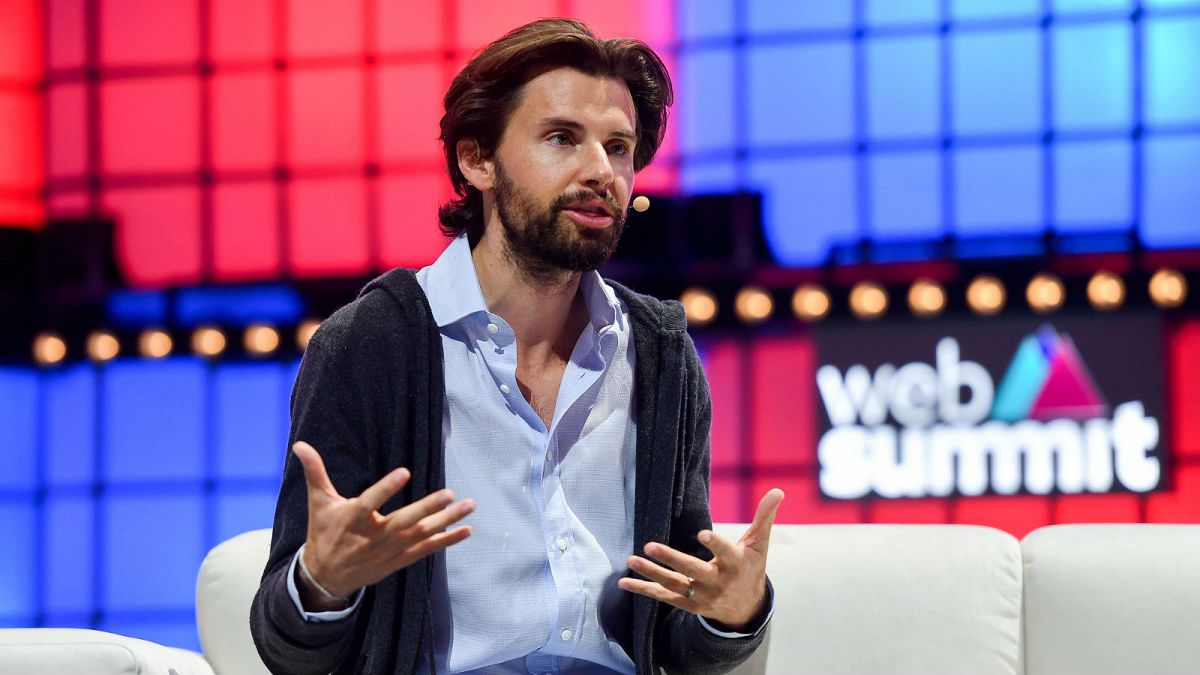A dating app CEO and former addict says he can control himself better around drugs and alcohol than his smartphone.
A dating app CEO and former addict says he can control himself better around drugs and alcohol than his smartphone.
Justin McLeod, the founder of Hinge, made the revelation at Web Summit in Lisbon while discussing addiction to technology.
It comes after psychiatrists in the US reported seeing more cases of internet addiction, which have spawned a wave of treatment programmes across the country.
But other voices are more sceptical, saying internet addiction is a false condition contrived by teenagers who refuse to put away their smartphones.
Technology addiction: the case for
“When we think about addiction, I don’t really think that there’s too much of a discrepancy between a behavioural addiction and a chemical addiction,” said McLeod
“I don’t think your brain really knows the difference, it’s going to get those same neurochemical hits, whether you’re taking a shot of alcohol or a line of cocaine or pulling out your phone to check that latest push notification.
“I think the simplest thing [to address the problem] is to take periodic breaks from it. I mean everyone feels burned out these days and I think a lot of it is because the last thing we do before we go to bed at night and the first thing we do in the morning is to be on our devices. We don’t give ourselves space and forcing yourself to be bored through those periodic breaks I think is really important.
“It’s just too tempting, I mean really, as a former alcoholic and addict. I can control myself around alcohol and drugs but I cannot control myself around my smartphone.
“I build in things in like not keeping certain apps on my phone, I use them when I’m on my computer. I literally have parental protections [on my phone] and I can’t use certain apps between 8 pm and 8 am every day so that I can completely shut off for at least 12 hours a day.”
Technology addiction: the sceptical voice
“I just think there’s a lot of hype around the idea of tech addiction,” said Dame Til Wykes, professor of clinical psychology and rehabilitation at Kings College London.
“I’m sceptical because you know in psychiatry we increase the sort of normative boundaries and call some things disorders when actually they’re not a mental health diagnosis. And I’m very wary of making that case for tech addiction.
“Tech is useful and people use it all the time, to often help them with their work. If you took the tech away I don’t think they would have the kinds of experiences that people with physical addictions have, like, with cocaine and substance abuse sorts of disorders.
What is Google doing about ‘technology addiction’?
Maggie Stanphill, Google’s user experience director, speaking on stage at the Web Summit in Lisbon, Portugal, said she often pondered what was a healthy relationship with technology.
“We know sleep is a fundamental human need, we know that we want to make sure that we’re helping people get the sleep they need and so some of the features that you might have seen on Android include wind down, so it turns your screen to grey, and it actually hopefully helps you consume a little less content and that the content is a little disruptive,” she said.
“We don’t necessarily think you have to have a screen in front of you to get the benefits [of a smartphone].
“We’re working towards ways that you can have your handy alarm clock at the ready but where you don’t necessarily have to pick your phone up first thing in the morning.”
Stanphill was asked by Euronews’ Jeremy Wilks why Google is concerned about phone addiction when it makes so much money out of the devices.
“I think with everything in tech we’re always evolving how we think about our products and, at the core, Google has always been about focussing on the user and all else will follow.”
What about a ‘paper phone’?
In October, technology giant Google revealed details of an initiative to tackle addiction of devices: the paper phone.
It’s an app that is designed to give you a break from the screen by allowing you to print key information that day to a piece of paper.
“We hope this little experiment can help you try a digital detox from technology and help you focus on the things that matter the most,” reads the blurb on the initiative, which is part of Google’s digital well-being experiments.
“We were particularly interested in the idea of a digital detox, which usually involves spending some time away from your smartphone,” said the developers behind the app.
“Many of the people we spoke to about this were literally terrified at the idea of leaving their phone behind.
“‘What would I do without my maps’, ‘I don’t even know my boyfriend’s phone number’.
“We also found out about a condition called Nomophobia, which is the fear of being without your mobile phone.
“Existing approaches often involve going cold turkey and completely cutting out the use of a digital device, but we feel this is sometimes inconceivable to people who rely heavily on their devices and can put them off the idea entirely.
“These insights shaped our approach to try to take the risk out of being without your mobile phone for a short period of time, in a gentle, empathic way. Rather than removing all of the functionality of your digital world we wanted to keep some of it, in a calmer, more passive way.”


